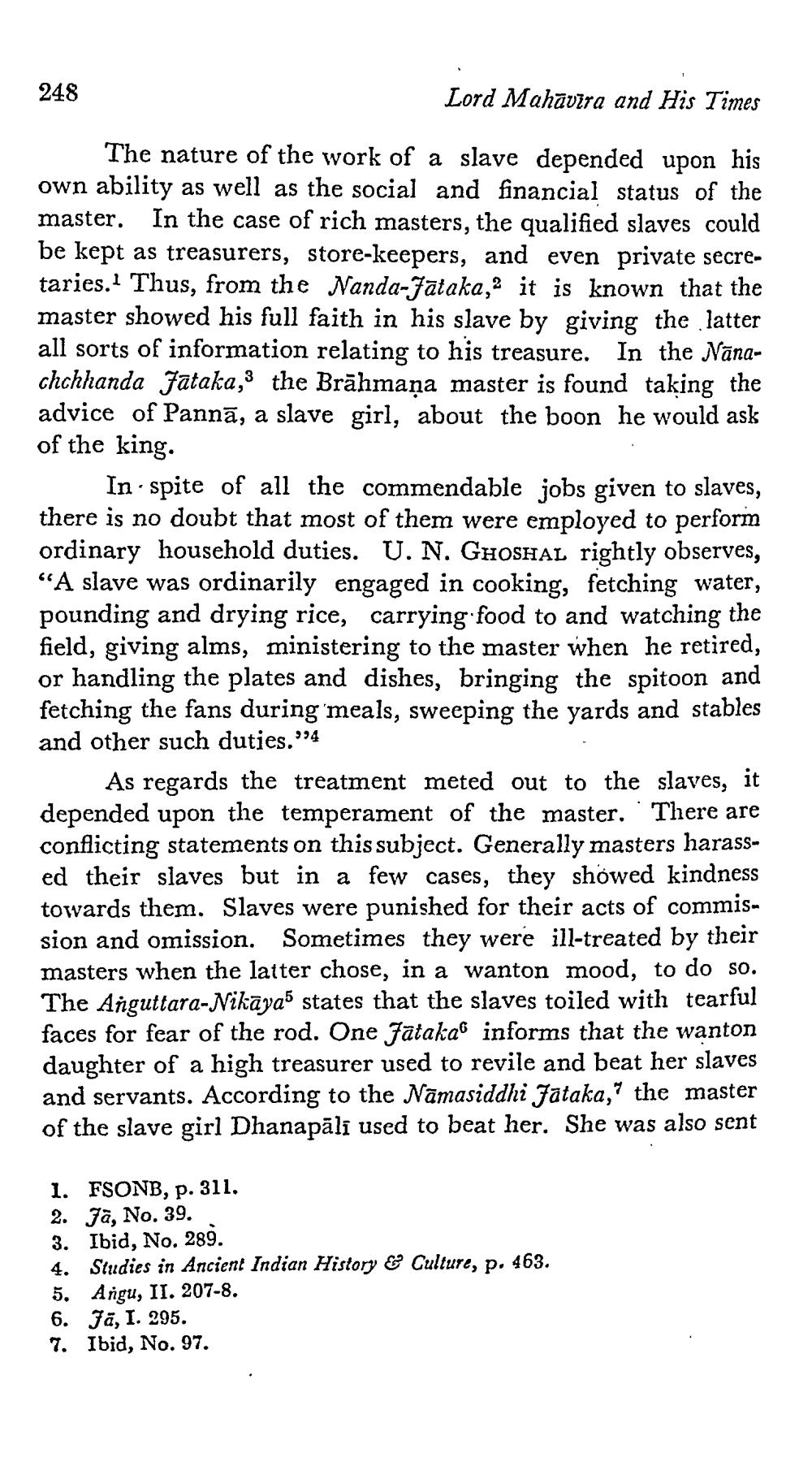________________
248
Lord Mahavira and His Times
The nature of the work of a slave depended upon his own ability as well as the social and financial status of the master. In the case of rich masters, the qualified slaves could be kept as treasurers, store-keepers, and even private secretaries.1 Thus, from the Nanda-Jataka,2 it is known that the master showed his full faith in his slave by giving the latter all sorts of information relating to his treasure. In the Nānachchhanda Jataka,3 the Brāhmaṇa master is found taking the advice of Pannā, a slave girl, about the boon he would asks of the king.
In spite of all the commendable jobs given to slaves, there is no doubt that most of them were employed to perform ordinary household duties. U. N. GHOSHAL rightly observes, "A slave was ordinarily engaged in cooking, fetching water, pounding and drying rice, carrying food to and watching the field, giving alms, ministering to the master when he retired, or handling the plates and dishes, bringing the spitoon and fetching the fans during 'meals, sweeping the yards and stables and other such duties."4
As regards the treatment meted out to the slaves, it depended upon the temperament of the master. There are conflicting statements on this subject. Generally masters harassed their slaves but in a few cases, they showed kindness towards them. Slaves were punished for their acts of commission and omission. Sometimes they were ill-treated by their masters when the latter chose, in a wanton mood, to do so.
The Anguttara-Nikāya5 states that the slaves toiled with tearful faces for fear of the rod. One Fatakan informs that the wanton daughter of a high treasurer used to revile and beat her slaves and servants. According to the Namasiddhi Jataka," the master of the slave girl Dhanapālī used to beat her. She was also sent
1. FSONB, p. 311. 2. Ja, No. 39. 3. Ibid, No. 289. 4. Studies in Ancient Indian History & Culture, p. 463. 5. Angu, II. 207-8. 6. Jā, I. 295. 7. Ibid, No. 97.




